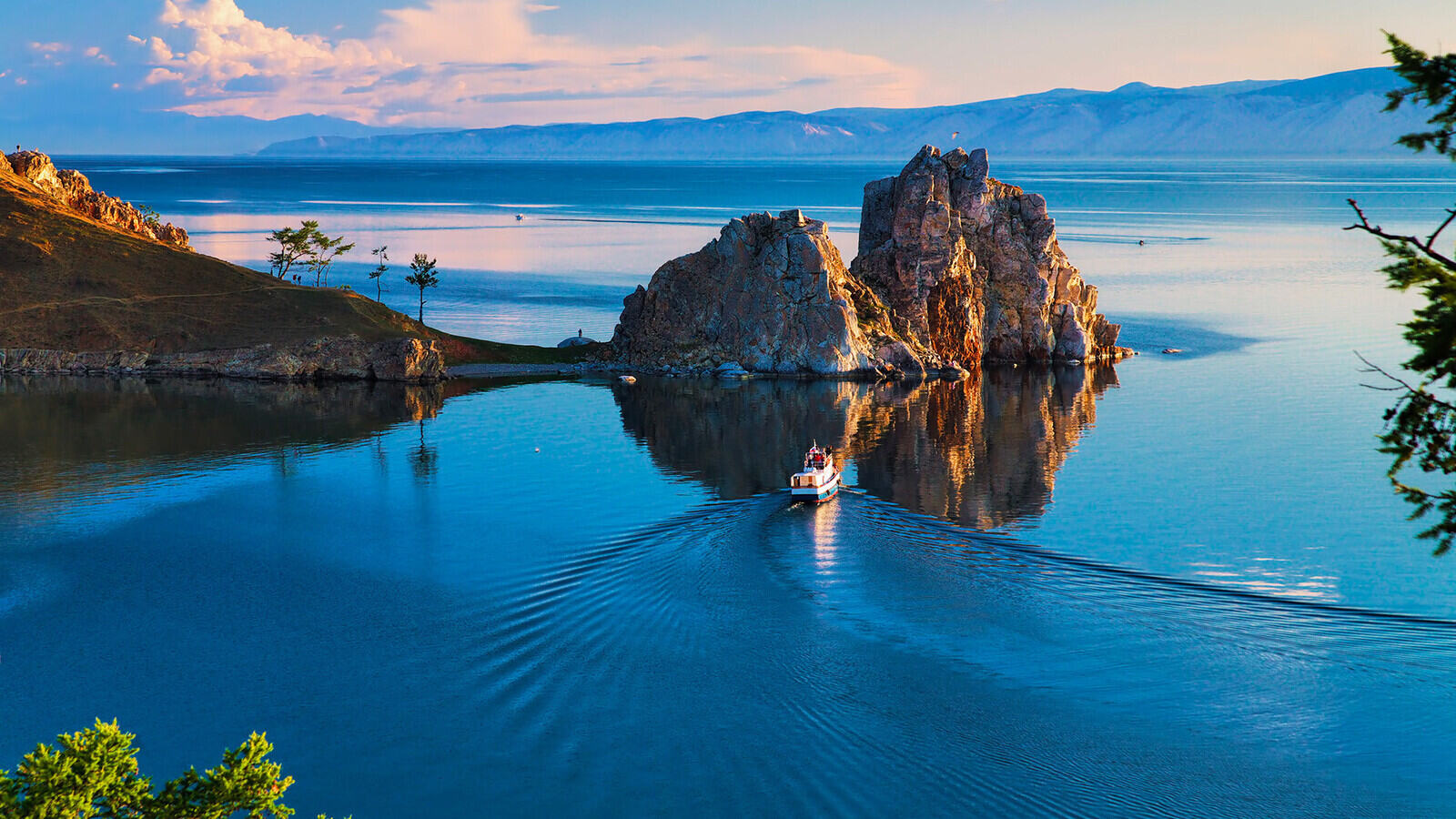
Russian lakes are some of the most stunning and mysterious bodies of water on Earth. With over 2 million lakes scattered across the vast landscape, each one holds its own unique charm and secrets. Have you ever wondered what makes these lakes so special? From the world's deepest lake, Lake Baikal, to the picturesque beauty of Lake Ladoga, Russia's lakes offer a glimpse into the country's rich natural heritage. Whether you're a nature enthusiast, a history buff, or just curious, these 25 facts about Russian lakes will leave you amazed and eager to learn more. Dive in and discover the wonders that lie beneath the surface of these incredible waters!
Key Takeaways:
- Russian lakes, like Baikal and Ladoga, are not only stunning natural wonders but also hold historical, ecological, and cultural significance, making them a must-visit for nature enthusiasts and history buffs alike.
- From the world's deepest lake to the site of famous battles, Russian lakes offer a unique blend of recreational activities, scientific research opportunities, and cultural inspiration, making them a treasure trove of exploration and discovery.
The Largest Lakes in Russia
Russia is home to some of the world's most impressive lakes. These bodies of water are not only vast but also hold significant historical, ecological, and cultural importance.
- Lake Baikal is the world's deepest and oldest freshwater lake, reaching depths of 1,642 meters and estimated to be 25 million years old.
- Lake Ladoga is Europe's largest freshwater lake by surface area, covering approximately 17,700 square kilometers.
- Lake Onega is the second largest lake in Europe, spanning around 9,700 square kilometers.
Unique Features of Russian Lakes
Russian lakes boast unique characteristics that set them apart from other lakes around the globe. These features contribute to their ecological diversity and scientific interest.
- Lake Baikal contains about 20% of the world's unfrozen freshwater, making it a crucial resource.
- Lake Elton is one of the saltiest lakes in Russia, with salinity levels comparable to the Dead Sea.
- Lake Karachay is considered one of the most polluted places on Earth due to radioactive waste dumping during the Soviet era.
Biodiversity in Russian Lakes
The lakes of Russia are teeming with life, hosting a variety of species, some of which are found nowhere else in the world.
- Lake Baikal is home to over 1,700 species of plants and animals, two-thirds of which are endemic.
- Lake Ladoga supports a diverse fish population, including the rare Ladoga seal.
- Lake Onega is known for its unique freshwater seal population.
Historical Significance of Russian Lakes
These lakes have played a pivotal role in Russian history, serving as sites for trade, transportation, and even battles.
- Lake Peipus was the site of the famous Battle on the Ice in 1242, where Russian forces defeated the Teutonic Knights.
- Lake Ladoga served as a crucial supply route during the Siege of Leningrad in World War II.
- Lake Baikal has been a sacred site for indigenous Siberian tribes for centuries.
Environmental Concerns
Despite their beauty and importance, Russian lakes face several environmental challenges that threaten their ecosystems.
- Lake Baikal is experiencing pollution from industrial waste, leading to concerns about its water quality.
- Lake Ladoga suffers from eutrophication due to agricultural runoff.
- Lake Karachay remains highly radioactive, posing severe health risks to nearby populations.
Recreational Activities
Russian lakes offer a wide range of recreational activities, attracting tourists from around the world.
- Lake Baikal is a popular destination for ice diving, offering crystal-clear visibility under the ice.
- Lake Ladoga is ideal for sailing and boating, with numerous islands to explore.
- Lake Onega attracts anglers with its abundant fish species.
Cultural Impact
The lakes of Russia have inspired countless works of art, literature, and folklore, reflecting their deep cultural significance.
- Lake Baikal is often referred to as the "Pearl of Siberia" in Russian literature.
- Lake Ladoga has been depicted in numerous Russian paintings, capturing its serene beauty.
- Lake Onega is featured in many Russian folk songs and legends.
Scientific Research
Russian lakes are important sites for scientific research, offering insights into climate change, geology, and biology.
- Lake Baikal is a key site for studying ancient climate records preserved in its sediment layers.
- Lake Elton provides valuable data on extremophile microorganisms that thrive in its salty waters.
- Lake Onega is studied for its unique freshwater seal population, offering insights into evolutionary biology.
Lesser-Known Facts
Beyond the well-known aspects, there are many intriguing and lesser-known facts about Russian lakes that captivate the imagination.
- Lake Taimyr in Siberia is one of the northernmost lakes in the world, remaining frozen for most of the year.
The Wonders of Russian Lakes
Russian lakes are truly fascinating. From Lake Baikal, the world's deepest, to the mysterious Lake Karachay, each one holds unique stories and natural wonders. These bodies of water are not just geographical features; they are vital to the ecosystem and cultural heritage. Whether it's the ancient history of Lake Ladoga or the breathtaking beauty of Lake Onega, there's something captivating about each one.
Exploring these lakes offers a glimpse into Russia's diverse landscape and rich history. They provide habitats for countless species and are crucial for local communities. Next time you think about Russia, remember its stunning lakes and the incredible facts that make them special. Dive into their stories, and you'll find a world of wonder waiting to be discovered.
Frequently Asked Questions
Was this page helpful?
Our commitment to delivering trustworthy and engaging content is at the heart of what we do. Each fact on our site is contributed by real users like you, bringing a wealth of diverse insights and information. To ensure the highest standards of accuracy and reliability, our dedicated editors meticulously review each submission. This process guarantees that the facts we share are not only fascinating but also credible. Trust in our commitment to quality and authenticity as you explore and learn with us.
